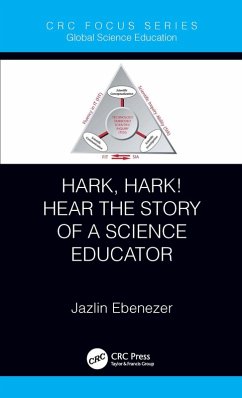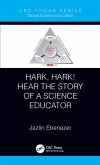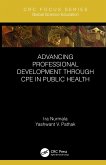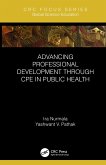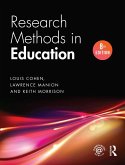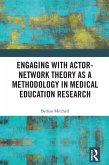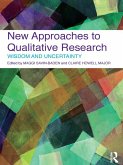Jazlin Ebenezer
Hark, Hark! Hear the Story of a Science Educator (eBook, PDF)
23,95 €
23,95 €
inkl. MwSt.
Sofort per Download lieferbar

12 °P sammeln
23,95 €
Als Download kaufen

23,95 €
inkl. MwSt.
Sofort per Download lieferbar

12 °P sammeln
Jetzt verschenken
Alle Infos zum eBook verschenken
23,95 €
inkl. MwSt.
Sofort per Download lieferbar
Alle Infos zum eBook verschenken

12 °P sammeln
Jazlin Ebenezer
Hark, Hark! Hear the Story of a Science Educator (eBook, PDF)
- Format: PDF
- Merkliste
- Auf die Merkliste
- Bewerten Bewerten
- Teilen
- Produkt teilen
- Produkterinnerung
- Produkterinnerung

Bitte loggen Sie sich zunächst in Ihr Kundenkonto ein oder registrieren Sie sich bei
bücher.de, um das eBook-Abo tolino select nutzen zu können.
Hier können Sie sich einloggen
Hier können Sie sich einloggen
Sie sind bereits eingeloggt. Klicken Sie auf 2. tolino select Abo, um fortzufahren.

Bitte loggen Sie sich zunächst in Ihr Kundenkonto ein oder registrieren Sie sich bei bücher.de, um das eBook-Abo tolino select nutzen zu können.
Hark, Hark! Hear the Story of a Science Educator highlights some compelling ideas on science teaching and learning through the author's journey and includes evolution and revolution in the growth of scientific knowledge.
- Geräte: PC
- mit Kopierschutz
- eBook Hilfe
Andere Kunden interessierten sich auch für
![Hark, Hark! Hear the Story of a Science Educator (eBook, ePUB) Hark, Hark! Hear the Story of a Science Educator (eBook, ePUB)]() Jazlin EbenezerHark, Hark! Hear the Story of a Science Educator (eBook, ePUB)23,95 €
Jazlin EbenezerHark, Hark! Hear the Story of a Science Educator (eBook, ePUB)23,95 €![Advancing Professional Development through CPE in Public Health (eBook, PDF) Advancing Professional Development through CPE in Public Health (eBook, PDF)]() Ira NurmalaAdvancing Professional Development through CPE in Public Health (eBook, PDF)22,95 €
Ira NurmalaAdvancing Professional Development through CPE in Public Health (eBook, PDF)22,95 €![Advancing Professional Development through CPE in Public Health (eBook, ePUB) Advancing Professional Development through CPE in Public Health (eBook, ePUB)]() Ira NurmalaAdvancing Professional Development through CPE in Public Health (eBook, ePUB)22,95 €
Ira NurmalaAdvancing Professional Development through CPE in Public Health (eBook, ePUB)22,95 €![Inquiry-based Science Education (eBook, ePUB) Inquiry-based Science Education (eBook, ePUB)]() Robyn M. GilliesInquiry-based Science Education (eBook, ePUB)21,95 €
Robyn M. GilliesInquiry-based Science Education (eBook, ePUB)21,95 €![Research Methods in Education (eBook, PDF) Research Methods in Education (eBook, PDF)]() Louis CohenResearch Methods in Education (eBook, PDF)49,95 €
Louis CohenResearch Methods in Education (eBook, PDF)49,95 €![Engaging with Actor-Network Theory as a Methodology in Medical Education Research (eBook, PDF) Engaging with Actor-Network Theory as a Methodology in Medical Education Research (eBook, PDF)]() Bethan MitchellEngaging with Actor-Network Theory as a Methodology in Medical Education Research (eBook, PDF)41,95 €
Bethan MitchellEngaging with Actor-Network Theory as a Methodology in Medical Education Research (eBook, PDF)41,95 €![New Approaches to Qualitative Research (eBook, PDF) New Approaches to Qualitative Research (eBook, PDF)]() New Approaches to Qualitative Research (eBook, PDF)39,95 €
New Approaches to Qualitative Research (eBook, PDF)39,95 €-
-
-
Hark, Hark! Hear the Story of a Science Educator highlights some compelling ideas on science teaching and learning through the author's journey and includes evolution and revolution in the growth of scientific knowledge.
Dieser Download kann aus rechtlichen Gründen nur mit Rechnungsadresse in A, B, BG, CY, CZ, D, DK, EW, E, FIN, F, GR, HR, H, IRL, I, LT, L, LR, M, NL, PL, P, R, S, SLO, SK ausgeliefert werden.
Produktdetails
- Produktdetails
- Verlag: Taylor & Francis eBooks
- Seitenzahl: 158
- Erscheinungstermin: 1. Juni 2020
- Englisch
- ISBN-13: 9781000066227
- Artikelnr.: 59558465
- Verlag: Taylor & Francis eBooks
- Seitenzahl: 158
- Erscheinungstermin: 1. Juni 2020
- Englisch
- ISBN-13: 9781000066227
- Artikelnr.: 59558465
- Herstellerkennzeichnung Die Herstellerinformationen sind derzeit nicht verfügbar.
Jazlin Ebenezer, Ed. D., Charles H. Gershensen Distinguished Faculty Fellow, is a Professor of Science Education and Curriculum Studies at Wayne State University, Detroit, Michigan, USA. Professor Ebenezer has been researching students' conceptions of science phenomena and the integration of innovative technologies into relational conceptual change inquiry of science. In collaboration with a computer science educator, she has currently designed and developed Students' Ideas App (SIA) Machine Learning, which explores and categorizes students' ideas and integrates them into the science curriculum. She has published numerous scholarly articles and some books related to science and its teaching in schools. She has been an invited keynote speaker in Australia, Bangladesh, China, India, South Africa, and Turkey.
Her awards include Charles H. Gershensen Distinguished Faculty Fellow in 2019, WSU, Fulbright Specialist Award by the U.S. Department of State in 2017, and 2000 Rh award Research and Development, Research Merit Award, and Outstanding Students Honoring Outstanding Teachers Award, from the University of Manitoba.
Professor Ebenezer was the founder of the Shuswap Seventh-day Adventist School, Salmon Arm, British Columbia, Canada, established in 1982. The school is operated by the Seventh-day Adventist Church, British Columbia, Canada. Together with her family, she has educated school and university students at various levels in Bangladesh, India, and Sri Lanka. Professor Ebenezer has also established Dr. Jazlin Ebenezer Research Fund, a Wider Church Ministries endowment fund, in gratitude for the education she had received at Lady Doak College, Madurai, Tamil Nadu, India. The Fund provides a grant to small teams of multi-disciplinary faculty members at Lady Doak College to conduct research on how women learn science, and to disseminate findings at national and international conferences. She completed B.Sc. in Special Chemistry at a premier women's college, Lady Doak College, Madurai University, Tamil Nadu, India, BA in Education and Masters in Education with a concentration in Physical Science at Western Washington University, Bellingham, Washington State, USA, and Ed. D. in Science Education at the prestigious University of British Columbia, Vancouver Canada. She can be contacted via e-mail: aj9570@wayne.edu.
Her awards include Charles H. Gershensen Distinguished Faculty Fellow in 2019, WSU, Fulbright Specialist Award by the U.S. Department of State in 2017, and 2000 Rh award Research and Development, Research Merit Award, and Outstanding Students Honoring Outstanding Teachers Award, from the University of Manitoba.
Professor Ebenezer was the founder of the Shuswap Seventh-day Adventist School, Salmon Arm, British Columbia, Canada, established in 1982. The school is operated by the Seventh-day Adventist Church, British Columbia, Canada. Together with her family, she has educated school and university students at various levels in Bangladesh, India, and Sri Lanka. Professor Ebenezer has also established Dr. Jazlin Ebenezer Research Fund, a Wider Church Ministries endowment fund, in gratitude for the education she had received at Lady Doak College, Madurai, Tamil Nadu, India. The Fund provides a grant to small teams of multi-disciplinary faculty members at Lady Doak College to conduct research on how women learn science, and to disseminate findings at national and international conferences. She completed B.Sc. in Special Chemistry at a premier women's college, Lady Doak College, Madurai University, Tamil Nadu, India, BA in Education and Masters in Education with a concentration in Physical Science at Western Washington University, Bellingham, Washington State, USA, and Ed. D. in Science Education at the prestigious University of British Columbia, Vancouver Canada. She can be contacted via e-mail: aj9570@wayne.edu.
Chapter One: Treading the Academic Waters
Chapter Two: You are Too Lazy!
Chapter Three: Evolving Educator
Chapter Four: The Science Banqueting Table
Chapter Five: A Multitude of 60-Watts, Amber Light Bulbs Glowing on Earth
Chapter Six: HyperCard to Artificial Intelligence for Relational Learning
Chapter Seven: Engineering for Learning Science Embedded in Societal Issues
Chapter Eight: Pythagorean Theorem: An Architecture for Curriculum Design
Chapter Two: You are Too Lazy!
Chapter Three: Evolving Educator
Chapter Four: The Science Banqueting Table
Chapter Five: A Multitude of 60-Watts, Amber Light Bulbs Glowing on Earth
Chapter Six: HyperCard to Artificial Intelligence for Relational Learning
Chapter Seven: Engineering for Learning Science Embedded in Societal Issues
Chapter Eight: Pythagorean Theorem: An Architecture for Curriculum Design
Chapter One: Treading the Academic Waters
Chapter Two: You are Too Lazy!
Chapter Three: Evolving Educator
Chapter Four: The Science Banqueting Table
Chapter Five: A Multitude of 60-Watts, Amber Light Bulbs Glowing on Earth
Chapter Six: HyperCard to Artificial Intelligence for Relational Learning
Chapter Seven: Engineering for Learning Science Embedded in Societal Issues
Chapter Eight: Pythagorean Theorem: An Architecture for Curriculum Design
Chapter Two: You are Too Lazy!
Chapter Three: Evolving Educator
Chapter Four: The Science Banqueting Table
Chapter Five: A Multitude of 60-Watts, Amber Light Bulbs Glowing on Earth
Chapter Six: HyperCard to Artificial Intelligence for Relational Learning
Chapter Seven: Engineering for Learning Science Embedded in Societal Issues
Chapter Eight: Pythagorean Theorem: An Architecture for Curriculum Design
